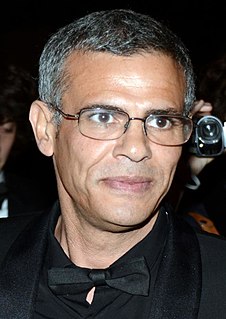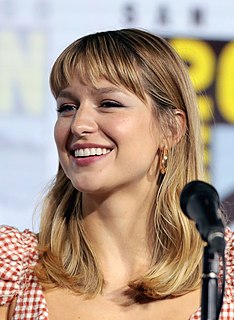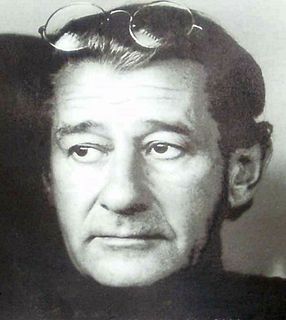A Quote by Abdellatif Kechiche
My film (Black Venus) had been very emotionally draining and difficult because I had identified so much with the lead character, Saartjie Baartman.
Related Quotes
If cathedrals had been universities If dungeons of the Inquisition had been laboratories If Christians had believed in character instead of creed If they had taken from the bible only that which is GOOD and thrown away the wicked and absurd If temple domes had been observatories If priests had been philosophers If missionaries had taught useful arts instead of bible lore If astrology had been astronomy If the black arts had been chemistry If superstition had been science If religion had been humanity The world then would be a heaven filled with love, and liberty and joy
Martin Scorsese was one of the few who had not been an assistant. Most of the guys had been an assistant and worked their way up. But I had seen an underground picture he had made in New York, a black-and-white film. I had done a picture for American International, about a Southern woman bandit, the Ma Barker story, and it was very successful, and I had left to start my own company, and they wanted me to make another one.
I met Michael Snow and Stan Brakhage the second day after I arrived, you know. I had never seen or heard of Brakhage. For me, it was a revolution, because I was well educated in film, but American-style experimental film was known to me in the abstract, and I had seen practically nothing. I had seen a film then that Noël Burch had found and was distributing called Echoes of Silence. It was a beautiful film, three hours long. It goes forever and it was in black and white, very grainy, and I saw that film and I thought...it was not New Wave. It was really a new concept of cinema.
There is good evidence that Venus once had liquid water and a much thinner atmosphere, similar to Earth billions of years ago. But today the surface of Venus is dry as a bone, hot enough to melt lead, there are clouds of sulfuric acid that reach a hundred miles high and the air is so thick it's like being 900 meters deep in the ocean.
White people scare the crap out of me. I have never been attacked by a black person, never been evicted by a black person, never had my security deposit ripped off by a black landlord, never had a black landlord, never been pulled over by a black cop, never been sold a lemon by a black car salesman, never seen a black car salesman, never had a black person deny me a bank loan, never had a black person bury my movie, and I've never heard a black person say, 'We're going to eliminate ten thousand jobs here - have a nice day!'
Thus much indeed he was obliged to acknowledge - that he had been constant unconsciously, nay unintentionally; that he had meant to forget her, and believed it to be done. He had imagined himself indifferent, when he had only been angry; and he had been unjust to her merits, because he had been a sufferer from them.
I had this whole issue of doing a crime film in the 2010s. The genre's been mined very, very heavily. Post-Scorsese, post-Tarantino, post-Guy Ritchie, what do you do? I wasn't attracted to pulp so much as all of a sudden I had a pulp problem. I had to find a way to make this interesting, because there's a lot of crime films that come out on VOD every week, and a number of these star Nicolas Cage.
[Maigret Sets a Trap] was always going to be the first film, and it seemed to be quite a nice story. But of course it meant that here I was playing this new character for the first time, in a place where he had been a relative failure, as all these people had been murdered and the pressure was on. Rather than starting optimistically with his pipe in front of the fireplace, he was in quite a difficult place.
The lights were off so that his heads could avoid looking at each other because neither of them was currently a particular engaging sight, nor had they been since he had made the error of looking into his soul. It had indeed been an error. It had been late one night-- of course. It had been a difficult day-- of course. There had been soulful music playing on the ship's sound system-- of course. And he had, of course, been slightly drunk. In other words, all the usual conditions that bring on a bout of soul searching had applied, but it had, nevertheless, clearly been an error.
Being someone who had had a very difficult childhood, a very difficult adolescence - it had to do with not quite poverty, but close. It had to do with being brought up in a family where no one spoke English, no one could read or write English. It had to do with death and disease and lots of other things. I was a little prone to depression.




































